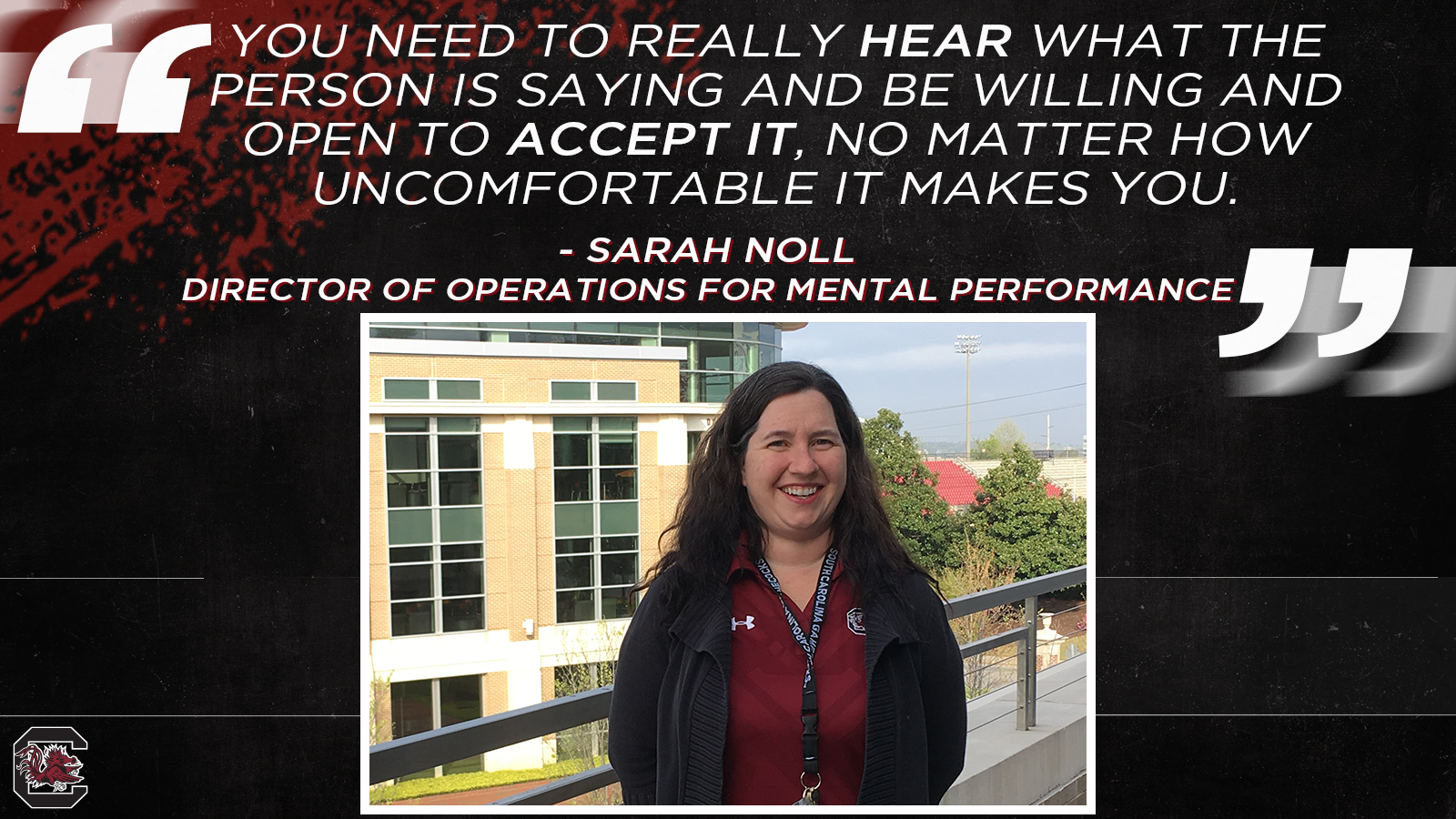
Mental Health Awareness Month - Part 2: Warning Signs
Check in on your friends and look for signs that may indicate depression.
South Carolina Athletics provides its student-athletes access to a wide variety of mental health providers, with expertise ranging from mental performance to mental health services, covering their psychological, psychiatric, and emotional needs. The Gamecocks have six mental health professionals on staff with psychiatrist and Director of Mental Health Dr. Timothy Malone, Director of Operations for Mental Performance Sarah Noll, licensed psychologists Dr. Rhea Merck and Dr. Mike McCall, sports psychologist Dr. Jan Veinot, and Director of Sport Leadership and Mental Performance, Dr. Raylene Ross. In part two of our series for Mental Health Awareness Month, our mental health professional discuss what to look for when it comes to depression and suicidal thoughts.
There is no single cause for suicide. It most often occurs when stressors and health issues combine to create a feeling of despair and hopelessness, with depression being the most common condition associated with it.

Dr. Timothy Malone
“Somebody may be exhibiting all the signs that maybe they’re experiencing depression or that they’re feeling that the world would be better off without them, and unfortunately, we can’t force them to get help if they don’t want to get help, but we can continue to be present,” Noll said. “Noticing signs such as if their mood is drastically changing from what it was, or if their behavior is drastically changing, if they were going to class every day and getting As, and now they’re not going to class at all, or not having future-oriented goals, those are all clues and indicators that something big is going on.”
“You should definitely take note if someone starts giving away prized possessions, or if they start saying things that sound like they’re giving goodbyes, or if they out-of-the-blue are expressing a gratitude for you that they don’t often do. Those can sometimes be indicators as well,” Dr. McCall said. “Also, if they’re using drugs or alcohol, that can increase the risk. There can be other acute life stressors such as injury, a break-up with a significant other, failing a class or failing a test, or if their parents are getting divorced.”
“You can also take note if you can tell they’re under pressure,” Dr. Veinot said. “They’re saying, ‘I’ve got to do this, I have to get this done, and then I’ve got to do that. I can’t fail. I’ve got to do this.’ They’re so concerned with not failing and the expectations they have for themselves are so high.”
“You can look at whether they’re isolating and turning down social opportunities,” Dr. Merck added. “They might be sitting by themselves, eating by themselves, standing back from the team at practices, potentially missing things they should be going to, sleeping a lot, or even not sleeping.”
Some of that isolation for a student-athlete can happen accidentally, such as when one is injured and can’t participate in most team activities.
Noll emphasized that starting the conversation can be the key.
“It’s OK to ask somebody, are you having thoughts of suicide?” Noll said. “If they say ‘yes’, then knowing the resources available to be able to connect them is probably the biggest thing. If they say ‘no, I’m fine,’ you can still tell them that we have these resources available to us and they’re free, so maybe it wouldn’t hurt to talk somebody, and again, let them know what the resources are.
“It’s really important to not dismiss anything or say things like, ‘you don’t mean that,’ or ‘you’re not going to do that.’ You need to really hear what the person is saying and be willing and open to accept it, no matter how uncomfortable it makes you.”
“One of the big things is instilling hope and letting someone know that you don’t have to live like this,” Dr. Merck said. “Whatever they’re going through, it’s not permanent, and we can help.”
Check out our next installment on May 19 to find out more about why this is happening and how to make a difference.
More in this series:
Mental Health Awareness Month: Standing Up for Opening Up
Mental Health Awareness Month – Part 1: Providing Hope to Cope












